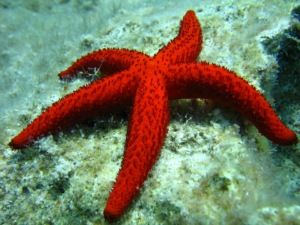News
Denmark to get world’s first starfish factory
This article is more than 7 years old.
Marine dwellers to be organic feed source for agriculture industry

A future source of food … for our food (photo: Pixabay)
In future, the farm animals that make up Denmark’s vast agricultural industry will be dining on seafood. Well, starfish to be more accurate.
This week construction started on the world’s first starfish factory in Skive in Jutland as part of an initiative aimed at making feed for the farming sector more organic and sustainable.
“Starfish are an eminent source of protein for animals and it’s nicer if we can find raw goods locally in Denmark and make them into high-value protein for our organic animals, rather than import protein from countries like China,” Niels Jørgen Madsen, the head of Danish Marine Protein, the firm behind the project, told DR Nyheder.
READ MORE: Organic farming in Denmark growing leaps and bounds
Grown locally
The plan involves harvesting starfish from Limfjorden Fjord and then drying them before turning them into organic protein fodder for the farming industry.
The initiative has other benefits too, such as reducing oxygen depletion in Limfjorden and giving the farming of mussels – which the starfish eat – better conditions to flourish.
Currently, much of the protein used by Danish agriculture is sourced from China, but by catching about 100 tonnes of starfish every day in Limfjorden that expense is expected to be slashed.
The factory, which is due to begin production next spring, is adjudged to be the first step in the exploration and development of other marine protein.










































